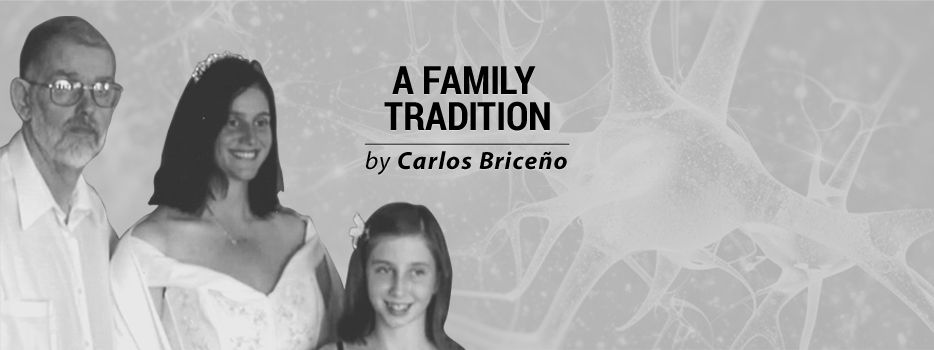As Caregivers, We Can Choose to Be Empathetic and Patient
Written by |

My mom is dying.
She’s 90, has dementia, can’t walk, yells angrily at times, and lives in an assisted living home, where visitors are frowned upon because of the COVID-19 threat. Several days ago, an ambulance picked her up because she had vomited and was unresponsive.
Several hours after visiting the emergency room, she was responsive and breathing normally again, so she was sent back to the home. She’s had several trips to the hospital in the past year. Though I have no scientific facts to bolster this, I feel in my bones that she’s not going to last the year.
She’s never been in great health, especially mentally. She’s bipolar, has a narcissistic personality, suffers from depression, had agoraphobia when I was a child, and deals with high blood pressure and leukemia. Growing up, I missed multiple days of school because she required me to stay home and take care of her when she was feeling low. She was also frequently angry.
I share all this to let you know that I learned at an early age what was required of a caregiver. I learned empathy. I learned patience. I learned to anticipate what she needed so she wouldn’t yell at me.
I would have loved a different method of caregiving, but life doesn’t give us the luxury of choosing how others act. It does, however, allow us to make choices.
And empathy is a choice. Patience is a choice. Showing kindness and love also are choices. All are required in caregiving, because when someone you love has something they would never choose, such as a rare disease called Huntington’s, what’s important is how you will act.
For all those caregivers who may not have learned empathy at a young age, or for whom patience is not an easy virtue to master, you are still left with a decision. What choice will you make? Will you choose to be a kind and loving caregiver and help the person you love with the patience and empathy they deserve? Or, will you choose the path of indifference?
Most people will not choose suffering, which usually accompanies the person you are taking care of. My wife and daughter, both of whom have Huntington’s, got the disease because it was passed down genetically through generations. They didn’t have a choice.
But I do. All caregivers do.
I choose to try to be the best caregiver I can for them. I may fail at times, but using the lessons I learned as a child, I aim to use my life’s experiences to let my family today know I love them and that I will do whatever it takes to care for them.
***
Note: Huntington’s Disease News is strictly a news and information website about the disease. It does not provide medical advice, diagnosis, or treatment. This content is not intended to be a substitute for professional medical advice, diagnosis, or treatment. Always seek the advice of your physician or other qualified health provider with any questions you may have regarding a medical condition. Never disregard professional medical advice or delay in seeking it because of something you have read on this website. The opinions expressed in this column are not those of Huntington’s Disease News or its parent company, Bionews, and are intended to spark discussion about issues pertaining to Huntington’s disease.






Richard Blumenthal
This is a very moving and heartfelt article. As a caregiver this situation would be tough. But with you being the caregiver to your mother, who has dealt with so much over the years, you're an inspiration. If you ever need any assistance, there are people out there with equally big hearts who want to help you and your mom. Good luck to you both! https://AdvantageHomeCareMaine.com
Carlos Briceño
Thank you.
Ann
Great reminder, thank you
Carlos Briceño
Thanks for writing, and you're welcome.